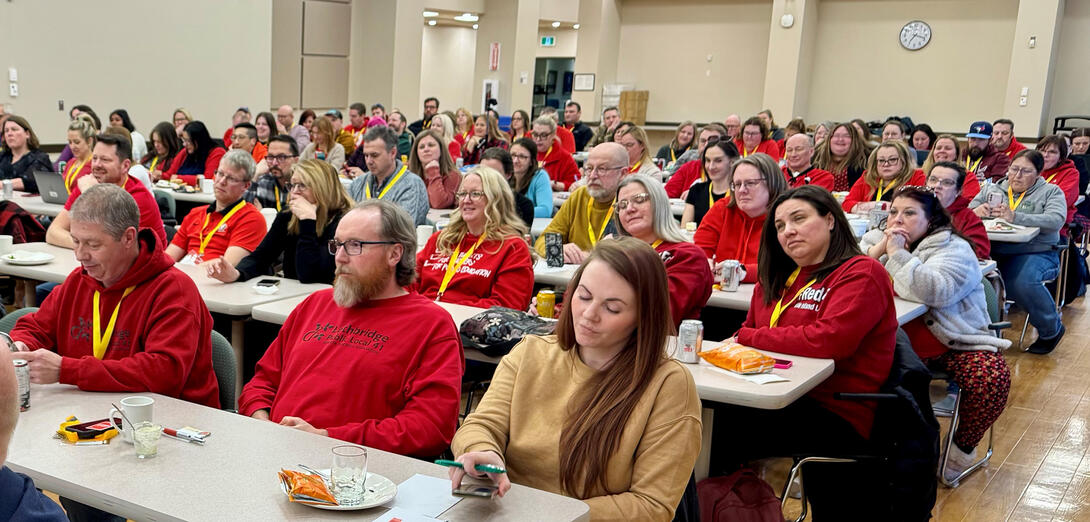Submitted by Kevin Wood, assistant professor in the Faculty of Education at the University of Lethbridge
Every school leader knows that no two days are ever the same. The job is as unpredictable as it is demanding, ranging from moments of joy to moments of frustration when the core focus — student learning — seems to be overshadowed by a cascade of administrative and external pressures. School leaders face constant demands from government, district offices and local communities, all of which expect higher standards with fewer resources. The reality of school leadership means people can feel as if the role itself gets in the way of leading learning.
In response to this dilemma, a group of 10 school leaders in Alberta embarked on a journey of professional growth over the past two years. These leaders participated in an experimental professional learning community (EPLC), a space where they could reflect on and discuss how their leadership was evolving through the process of learning. Their aim was to practice being learners, embodying the principles of learning they strive to instill in their students.
Learning beyond the surface
The EPLC group sought to redefine being a learner in a leadership role. Traditionally, learning is viewed as a linear process, a state of not knowing to knowing, from unpreparedness to preparedness. However, the EPLC was less interested in knowing and more focused on learning as a dynamic process that flourishes on openness in the moment. As one participant noted, the goal was to go beyond merely understanding learning to live it in their daily practice. True learning, they discovered, requires openness, a willingness to acknowledge moments of uncertainty, an understanding that not every answer is readily available and that leadership requires constant adaptation.
This shift in mindset became particularly evident against the backdrop of Alberta’s current education climate, where underfunding and policy constraints make it increasingly difficult for schools to thrive. The EPLC study highlighted how openness to new ways of thinking and working, even in such challenging conditions, is at the heart of leading.
The role of openness
Through their participation in the EPLC, school leaders made two crucial insights.
First, the act of being open, both to learning and to the perspectives of others, was a transformative experience. Leaders who embraced this openness found themselves not only growing in their practices but also cultivating an environment where others could grow as well. One leader in the study shared that reflecting on their practice regularly had made their leadership more intentional and focused, with new questions arising almost daily about how they could improve.
Second, they found that the very system in which they worked often hindered this openness. The demands of accountability and the expectations of external stakeholders created pressures that sometimes made it difficult for school leaders to engage fully in the process of learning.
This tension became a vital area of focus. By identifying moments when they were able to embrace openness, the leaders realized that these were the moments when they felt most connected to their work, even when their work was more managerial in nature.
Transforming leadership through learning
The participants found that when they embraced learning in their leadership practice, they were better able to model these behaviours. This not only had a direct impact on their own growth but also helped support a culture of learning in their schools. One leader shared that by prioritizing learning in their leadership, they found a renewed sense of purpose and energy. For these leaders, learning wasn’t simply about meeting external expectations or ticking boxes; it was about fostering a deep connection to both growth and those they served. As one participant described, learning helped them become a “better version” of themselves, enabling them to help others grow.
Key takeaways for school leaders
- Be open: Leaders enriched their practice and themselves when they practiced searching for potential in both the novel and mundane moments of their day.
- Prioritize learning as a central focus: School leaders should intentionally create space for learning as a way to be.
- Balance external expectations with internal growth: Leaders should aim to learn even within the constraints of their responsibilities.
The EPLC study demonstrated that leading with a learning mindset is a way for school leaders to navigate the complexities of their roles. By prioritizing learning, fostering collaboration and balancing external pressures with internal growth, school leaders can support the development of both students and educators. ❚



